Produce Calendar
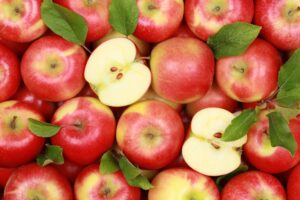
Apples
Look for firm, bright fruit free of nicks and bruises. Its shelf life can be extended to up to six months when stored in ideal conditions: between 30°F and 40°F with high humidity.
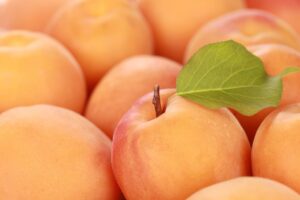
Apricots
Though they become softer, apricots do not continue to ripen once they are picked. Its skin should be a bright sunburst of orange, red, and gold free of wrinkles, cuts, or bruises.
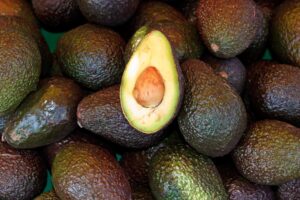
Avocados
Look for dark green to nearly black skin with a bumpy texture. A ripe avocado yields to gentle pressure without feeling mushy.
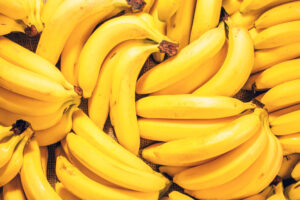
Bananas
Look for a bunch that is still a greenish color and allow them to ripen at their destination. They should be firm, without bruised or black spots. Storing bananas with apples will speed up ripening while refrigeration will slow the process.
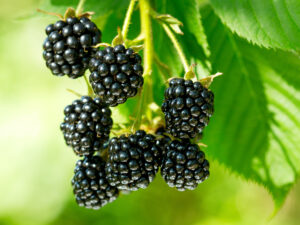
Blackberries
Perfect berries are plump and very dark in color. Firm, light purple, or red berries require more time on the vine before picking.
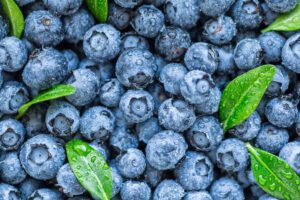
Blueberries
Ripe blueberries are firm, plump and smooth-skinned with a mix of deep purples, blacks, and blues with a silvery sheen. Red berries are edible, but sour.
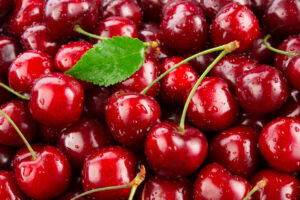
Cherries
Bigger is better for cherries. Look for large, plump, firm fruit. Refrigeration is key to preserving their taste and freshness.
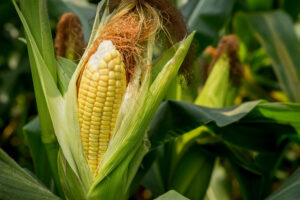
Corn
The quality of an ear can be checked without removal of the husk. The husk should be bright green and tightly wrapped around the ear. Gently squeeze to feel for plump and plentiful kernels.
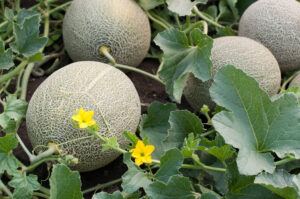
Field Melons
Choose a melon that is heavy for its size and has a hollow sound when tapped. For honeydew, look for a semi-dull exterior, as a shiny exterior is a sign that it is underripe. Cantaloupes should be a light lemony yellow, with little to no green.
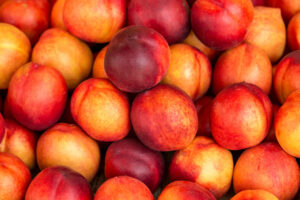
Nectarines
Nectarines are a variety of peach and are often interchangeable in cooking. When ripe, the skin should have a sunburst color, yield to gentle pressure, and produce a sweet fragrance.
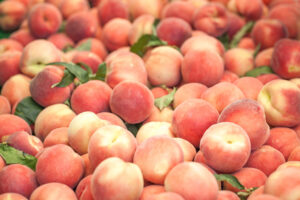
Peaches
Color is a key indicator of a peach’s quality. Look for deep red coverage with splashes of vibrant yellows and oranges. The skin should be firm, free of bruises, and emit a pleasant aroma.
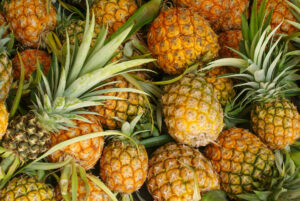
Pineapples
A perfect pineapple will have a bright, fresh appearance with green leaves and a firm texture with a small amount of give. The bottom of the pineapple will emit its signature scent at peak ripeness.
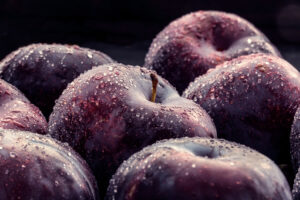
Plums
Select plums with smooth skin, are free of cracks, and are fairly firm, but softer near the stem. A white, powdery cast is natural and indicates the fruit has been minimally handled. Once picked, the fruit will become juicer as it softens, but does not change in flavor.
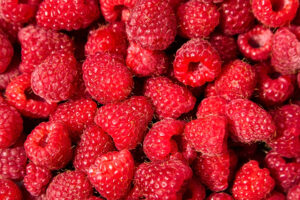
Raspberries
A ripe berry should be bright, plump, and dry. Berries packaged in open baskets are less prone to mold.
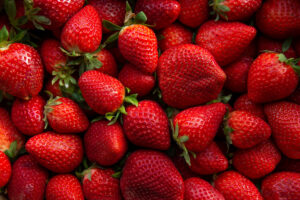
Strawberries
Unlike other fruits, strawberries do not continue to ripen after they are picked. Therefore, it’s best to choose bright red berries that are ready-to-eat.
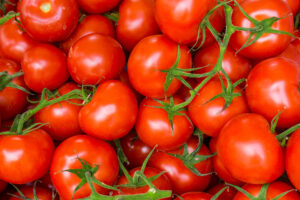
Tomatoes
Due to the rainbow of varieties of tomatoes, color is not the best indicator of ripeness. Instead, look for fruit with a nice weight for their size, a firm skin that relents to gentle pressure, and is free of tears, blemishes, and dark spots.
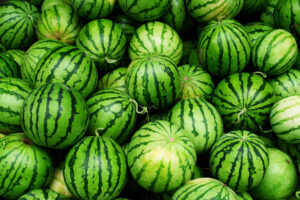
Watermelons
When choosing a watermelon, look for darker green melons that feel heavy and sound hollow when tapped.
